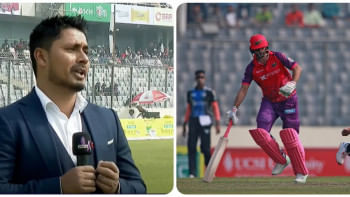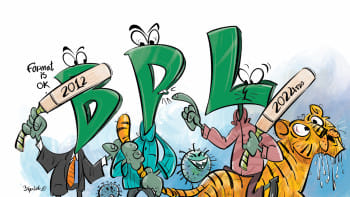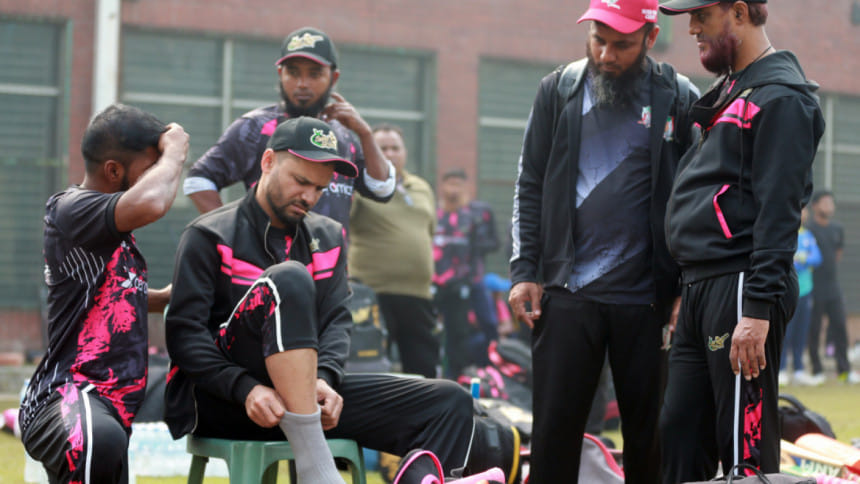Political parties are yet to agree on the appointment process for key constitutional and statutory bodies, including the Public Service Commission, the Anti-Corruption Commission, and the Comptroller and Auditor General.
Despite 20 days in the second round of talks between political parties and the National Consensus Commission, the structure of the caretaker government system is still unresolved. Only three days remain before the commission's July 31 deadline for finalising the "July Charter" ends.
Yesterday, Jamaat-e-Islami proposed a new method for forming the caretaker government. For the chief adviser selection, the party suggested that if a unanimous decision cannot be reached by the proposed five-member committee, the panel members can go for open ballot rank-choice voting system, a method where voters rank candidates in order of preference.
According to Jamaat, this approach would reduce the risk of "horse trading" and promote greater transparency.
Meanwhile, the BNP walked out of the consensus commission dialogue session yesterday, protesting the tabling of appointment of Ombudsman and formation of three key constitutional bodies.
The party rejoined the talks around 12:30pm.
Briefing reporters, commission Vice-president Prof Ali Riaz said most political parties supported amending article 137 of the constitution to reform the PSC appointment process. However, the BNP and a few other parties preferred legislating the procedure instead of amending the constitution.
"Despite differences on the method of appointment, all parties agreed that the PSC must remain independent and free from political interference," he said.
Regarding the caretaker government set-up, Prof Riaz said while all parties agree on its reinstatement, there remain diverging views about the decision-making process, and structure of the appointment committee.
The BNP has yet to endorse Jamaat's rank-choice voting proposal, though the commission remains optimistic that consensus might be achieved by this morning.
The National Citizen Party said it would discuss the proposal at its party forum.
"There is broad political consensus on reintroducing the caretaker government system," said Syed Abdullah Mohammad Taher, Jamaat nayeb-e-ameer.
"While some differences remain on its structural framework and the appointment process of the chief adviser, we have proposed a new method."
Regarding the PSC formation, both Jamaat and NCP pushed for de-politicisation of appointments. They strongly supported constitutional provisions outlining the formation, regulation, and appointment procedures at the PSC.
Akhtar Hossen, NCP member secretary, said, "We proposed a selection committee that is non-partisan and includes representation from both the ruling and opposition parties. This is how we can prevent political influence and ensure good governance."
He pointed out that the article 138 allows the president to make appointments based on the prime minister's advice.
"Replacing that with a neutral selection committee in the constitution would not be a radical shift, but rather the beginning of effective accountability.
"The BNP agreed to a selection committee for electoral reforms. We urge them to reconsider their position on this issue too. If such a committee is acceptable for the Election Commission, why not for other key institutions?"
Prof Riaz said most parties supported making the ACC a constitutional body. While the BNP and a few others expressed reservations. Discussions are continuing with possible revisions, he said.
Due to time constraints, discussions on women's representation in parliament could not be held yesterday. However, the commission said the topic will be taken up in the next two days.
In a surprising development, a false fire alarm at the Foreign Service Academy briefly disrupted yesterday's dialogue. Around 12:15pm, the alarm went off, prompting participants to evacuate the building.
By 12:25pm, the alarm was deactivated, and the session resumed. The commission requested a probe into the incident and asked for a report within 24 hours.



 For all latest news, follow The Daily Star's Google News channel.
For all latest news, follow The Daily Star's Google News channel. 







